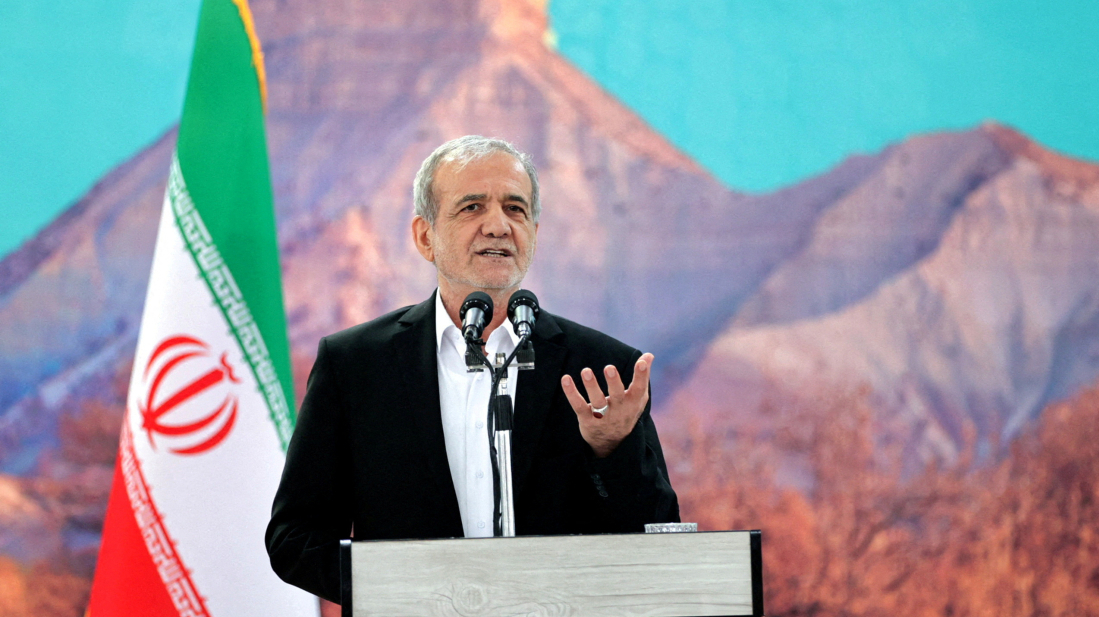Israel strikes Lebanon's Beirut suburbs after Hezbollah attack
Israel carried out heavy airstrikes on the Hezbollah-controlled southern suburbs of Beirut on Monday (2 March), af...

Iranian President Masoud Pezeshkian has issued a stark warning over unsustainable water usage, cautioning that the capital Tehran could face severe shortages as early as September if consumption is not brought under control, the semi-official Tasnim news agency reported on Thursday.
Iran has long struggled with resource mismanagement and excessive consumption, leading to repeated electricity, gas, and water shortages during periods of high demand.
“If we fail to manage the situation and people do not cooperate in reducing consumption, there will be no water left in Tehran’s dams by September or October,” Pezeshkian warned.
According to Sheena Ansari, head of the Environmental Protection Organisation, Iran has endured drought conditions for the past five years. The Meteorological Organisation has recorded a 40% decline in rainfall over the past four months compared to long-term averages.
“Our lack of focus on sustainable development has left us grappling with serious environmental challenges, including water stress,” Ansari told state media.
One of the key concerns is high domestic water consumption. Mohsen Ardakani, head of Tehran province’s water and wastewater company, told Mehr news agency that 70% of residents use more than the recommended 130 litres per day.
Iran’s water crisis is compounded by the agricultural sector, which consumes around 80% of the country’s water resources. Addressing the issue will require comprehensive reforms in natural resource management, something successive governments have struggled to implement.
On Wednesday, President Pezeshkian dismissed a government proposal to declare Wednesdays a day off or introduce a week-long summer holiday to curb demand, saying such measures merely "cover up" the crisis rather than solve it.
Iran has previously faced public unrest over water shortages, most notably during the summer of 2021 in the country’s southwest.
Follow the latest developments and global reaction after the U.S. and Israel launched “major combat operations” in Iran, prompting retaliation from Tehran.
Ayatollah Alireza Arafi has moved into a pivotal constitutional role following the death of Supreme Leader Ayatollah Ali Khamenei, becoming the clerical member of Iran’s temporary leadership council under Article 111 of the Constitution of the Islamic Republic of Iran.
Governments across the region responded swiftly to Israel’s strikes on Iran, closing airspace, issuing travel advisories and activating contingency plans amid fears of escalation.
A senior Iranian official has warned Israel to “prepare for what is coming”, insisting that Tehran’s response to the latest escalation in the Middle East will be made openly and without limits.
Ayatollah Ali Khamenei, Iran’s supreme leader for 36 years and the country’s highest political and religious authority, has died aged 86 following joint Israeli and U.S. strikes on his compound in Tehran.
Protests broke out in Pakistan and Iraq on Sunday after Iranian state media confirmed that Supreme Leader Ayatollah Ali Khamenei had been killed in joint U.S.–Israeli strikes. At least nine people were reported dead in clashes near the U.S. consulate in Karachi.
Afghanistan said it had fired at Pakistani aircraft over Kabul after explosions and gunfire rocked the capital early on Sunday, marking a sharp escalation in fighting between the two neighbours.
A senior Iranian official has warned Israel to “prepare for what is coming”, insisting that Tehran’s response to the latest escalation in the Middle East will be made openly and without limits.
Cuba has released extensive details of a deadly midweek shootout at sea, showing rifles, pistols and nearly 13,000 rounds of ammunition that it says were carried by a group of exiles who attempted to enter the island by speedboat.
Afghanistan’s Taliban rulers said on Friday (27 February) they were ready to negotiate after Pakistan bombed their forces in several Afghan cities, including Kabul and Kandahar, and Islamabad declared the neighbours were now in "open war".
You can download the AnewZ application from Play Store and the App Store.

What is your opinion on this topic?
Leave the first comment